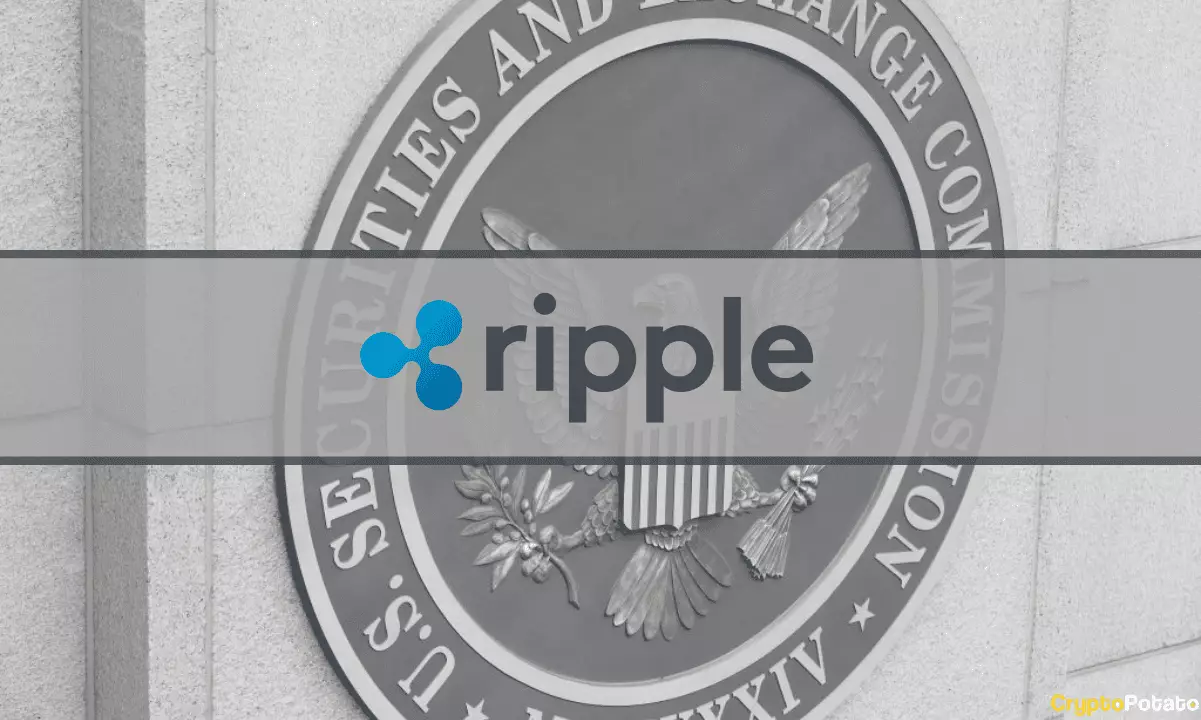In a significant development in the ongoing legal battle between Ripple Labs and the U.S. Securities and Exchange Commission (SEC), the agency has filed a notice of appeal seeking to reverse a 2023 ruling that largely favored Ripple. The ruling, made by Judge Analisa Torres, determined that the secondary sales of Ripple’s XRP token do not classify as sales of securities under the SEC’s jurisdiction. This legal contention, rooted in the complexities of cryptocurrency regulations, raises questions not only about Ripple’s future but also about the broader landscape of digital assets in the United States.
The heart of the dispute revolves around whether XRP should be considered an investment contract, as defined by the SEC’s Howey test—a standard set forth by the Supreme Court to classify certain transactions as securities. Judge Torres’s ruling suggested that XRP falls outside this designation, failing to meet all four of the requisite conditions. This conclusion served as a potential precedent for other cryptocurrency projects facing similar scrutiny. The SEC’s decision to appeal comes after years of ongoing litigation, which many within the crypto community view as an example of regulatory overreach.
Ripple’s chief legal officer, Stuart Alderoty, expressed notable disappointment with the SEC’s appeal, labeling it an extension of what he considers the agency’s embarrassment. He pointed to the court’s dismissal of SEC allegations concerning reckless behavior and fraud by Ripple, framing the regulatory body as engaging in “litigation warfare” against the entire cryptocurrency industry. Alderoty’s comments underscore a growing frustration among blockchain advocates regarding the SEC’s approach to digital asset regulation.
The Reaction from Ripple’s Leadership
Ripple’s CEO, Brad Garlinghouse, characterized the appeal as misguided, asserting that XRP’s classification as a non-security should stand. He emphasized the necessity of continuing the legal fight, indicating that Ripple is prepared to face the SEC for as long as it may take. This determination reflects not only Ripple’s stance but also a broader sentiment within the crypto sector: many see the SEC’s actions as fundamentally misaligned with the realities of blockchain technology and innovation.
Both Garlinghouse and Alderoty’s assertions reveal a critical perspective on the SEC’s motives. They argue that the agency, under Chair Gary Gensler, is pursuing an anti-crypto agenda that not only targets Ripple but could have far-reaching consequences for the entire industry. This narrative significantly resonates with many stakeholders in the cryptocurrency sphere, who worry that aggressive regulatory actions could stifle innovation and investment.
As the SEC’s appeal reverberates throughout the crypto market, XRP holders are facing immediate repercussions. Following the announcement, the value of XRP plummeted by 12%, showcasing the market’s sensitivity to regulatory developments. Trading at around $0.60 prior to the news, XRP dipped to just below $0.53, marking a three-week low and reflecting a staggering 84% decrease from its all-time high in January 2018. Such volatility highlights the precarious nature of crypto assets amid regulatory uncertainty.
The active selling among investors following the news serves as a testament to how legal battles can significantly affect market dynamics. XRP’s struggles are not isolated; they mirror the experiences of several other cryptocurrencies facing scrutiny from regulators. The growing concerns regarding the sustainability of such assets under regulatory frameworks are leading to a more cautious approach among investors.
The Broader Implications
The SEC’s appeal against Ripple cannot be viewed in isolation; it is part of a larger dialogue on the regulation of digital assets in the United States. As government agencies grapple with classifying cryptocurrencies effectively, many industry participants call for clearer guidelines. The Ripple case, along with others, could serve as a catalyst for reforms that promote innovation while establishing necessary investor protections.
Moreover, the SEC’s pursuit of Ripple raises ethical questions concerning the agency’s resource allocation, especially when critics like John Deaton argue that taxpayer money is being wasted on what they view as an ill-conceived anti-crypto agenda. This sentiment among prominent figures in the crypto space suggests a growing demand for a reevaluation of regulatory policies that impact digital assets.
The SEC’s appeal in the Ripple case is more than a mere legal contest; it is emblematic of an ongoing struggle between innovation in the cryptocurrency space and regulatory frameworks struggling to keep pace. As Ripple prepares for what may be a protracted legal battle, the outcome of this case could significantly influence the future of cryptocurrencies and their acceptance in the traditional financial sector.


Leave a Reply